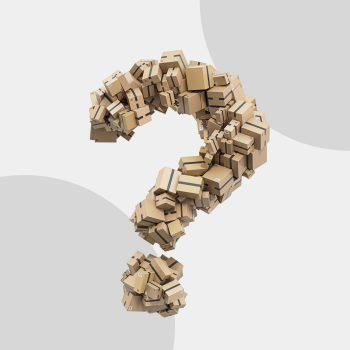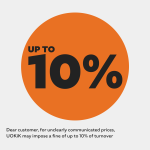
- UOKiK keeps receiving complaints about dishonest businesses selling clothes, shoes, and leather goods online.
- By impersonating Polish brands, they tempt customers with large discounts. However, as it turns out, we do not buy from our neighbours, but from Asian sellers, mainly from China.
- Check what to watch out for when shopping online – please refer to the UOKiK guide.
– We are seeing an increasing scale of phenomena such as fake online shops, impersonation of domestic brands and hidden dropshipping. Dishonest traders mislead consumers about the origin of their business and goods. This infringes on consumer interests and damages the reputation of the companies these entities are impersonating. Consumers need to know what to look out for in order to minimise the risk of losing money and making unsuccessful purchases – says Tomasz Chróstny, President of UOKiK.
Classic scam
Fake online shops tempt bargain hunters and shoppers in a hurry. An attractive offer, eye-catching photos, a website that appears to be above suspicion. However, it is worth taking a closer look and giving yourself more time to think about it. Prices are often surprisingly low, messages are stylistically incorrect, and company details are usually incomplete. In addition, there is no information about the return policy, and the address of a distant Asian country is provided in a hard-to-find place. This should alarm us. In many such cases, after payment is made, the goods are not shipped and the websites disappear from the Internet. It also happens that we receive a parcel, but the product differs significantly from the photos we used to make our purchase, and there is no contact with the seller. Such incidents should be reported to the police and to CERT. It is also worth informing the bank where you have your account, especially if you paid by card. You can get your money back with the so-called chargeback procedure.
This is not a Polish store
The name indicates that it is a Polish business – it includes a first name, surname or place name with an additional description, e.g. fashion, boutique. Sometimes it is almost a copy of an existing brand’s web address, differing by only one character, such as a hyphen. We come across an advertisement for the shop on a social media platform – this is an increasingly common method used by fraudsters. They use sponsored posts and ad profiling to increase the likelihood that we will click on a link. They promote clothing, accessories or other products tailored to our interests. The website of such a shop may look professional – it is often a copy of actual Polish businesses.
There are many ways to encourage people to buy. Big promotions, description emphasising the family nature and long tradition of the business. Sometimes information appears about a store closing down and selling off its stock, asking for help for a local business owner who was unable to compete with larger competitors. It could be the opposite – an appeal for support for a newly established local brand. We make a decision, and then…
– Consumers are surprised that they bought from a Chinese entity, since the name and content on the website suggested that they were dealing with a Polish company. This raises legitimate concerns about delivery times and possible complaint procedures, but above all about whether the offer is a scam – says Tomasz Chróstny, President of UOKiK.
Returning goods purchased on such websites is sometimes possible, but the package must be sent to the seller’s address in an Asian country, which involves additional costs and uncertainty as to whether the money will be refunded. It is important to remember that European consumer protection standards do not apply here. Problems with such purchases should be reported to CERT: incydent.cert.pl.
Hidden dropshipping
The shop where we choose products is not always the seller. In dropshipping, the website is run by an intermediary, and we buy directly from another entity. The seller should be indicated on the website, along with information about what they are responsible for and what the intermediary is responsible for. If sales are conducted via a platform, its responsibilities should also be clearly defined. This is important when deciding whether to use the services of an intermediary. However, consumers increasingly do not know who they are buying from. This may be due to ambiguous messages on the website or in the terms and conditions, but there are also shops that do not provide any information about their business model at all. In such situations, the terms and conditions do not contain the information required by law, nor do they mention the obligation to return the goods, e.g. to China, which also involves considerable costs.
– Dishonest entrepreneurs can hide information about the fact that they operate on a dropshipping model, thereby misleading their customers. Consumers only find out that they have purchased from an Asian entity rather than a Polish store when the goods do not arrive, do not match the description, or simply when they want to return them. However, when they view the store’s offer, they should know who they are actually buying from – says Tomasz Chróstny, President of UOKiK.
If you have trouble returning products purchased from an intermediary, it is worth seeking help from consumer ombudsmen. If the intermediary has its registered office outside Poland but within the European Union, the appropriate contact will be European Consumer Centre. Dropshipping is a legitimate business model provided that consumers are not misled.
Preliminary investigation – Meta Ads and Google Ads
Shops exploit the trust that consumers place in social media platforms and treat them as a new method of reaching a wide range of customers. Among them, there are also entrepreneurs who want to deceive us. The first contact with a potentially dangerous website often occurs through an advertisement that appears on social media, such as Facebook.
– We are conducting an investigation to examine the mechanisms for publishing advertisements on social media platforms such as Facebook and Instagram, as well as on numerous websites of entities cooperating with Google, and to verify the extent of supervision over the promoted content. Dishonest entrepreneurs often use advertising profiling and sponsored posts to increase the likelihood that we will visit their website – says Tomasz Chróstny, President of UOKiK.
Be alert when you see:
- Advertisements on social media.
- Information about store closures or requests for support for a newly established brand.
- Web addresses with unusual extensions, e.g. .xyz, .lol, .top, although .com and .pl also do not guarantee a secure transaction.
- The name of the shop in the layout: first name or surname + city.
- A brand you recognise, but with a typo or an additional character, e.g. a hyphen.
- Language errors on the website.
- Dark patterns – e.g. time counters, pop-up windows, other attempts at manipulation.
- Very large promotions – especially when there is no information about the lowest price from 30 days before the sale.
- Incomplete contact details of the entrepreneur, no registered office address.
- Ambiguous provisions in the regulations.
- Information about the return address for Asian countries.
We encourage you to refer to the UOKiK guide – we have compiled the most important information on what to look out for, what should cause concern, how not to be deceived and what you should know when shopping online.
Information for the media
| +48 603 124 154 | |
| biuroprasowe@uokik.gov.pl | |
 | pl. Powstańców Warszawy 1 00-950 Warszawa |
Follow us
Help for consumers
| 801 440 220 | +48 222 66 76 76 operator fee | |
| poradydlakonsumentow.pl contact form | |
 | Consumer Ombudsmen in your town or district |
 | Trade Inspection in your province |

















